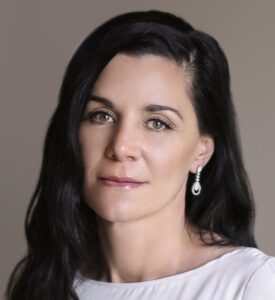

Today, Feathered Quill reviewer Diane Lunsford is talking with Rachael Siddoway and Sonja Wasden, authors of An Impossible Life: The Inspiring True story of a Woman's Struggle from Within (The Impossible Series).
FQ: As a writer, it is hard for me to admit that ‘words escape me’ when it comes to putting into words how this book impacted me. I commend you both for writing such a riveting story. Throughout the construction, were there moments when it became too painful to continue and did you have doubts toward wanting to continue? If so, can you share one of those times?
SONJA: Yes, there were many times the writing process became so painful to re-live these moments I wanted to quit. Anytime I have to write or read about not being able to finish raising my 16-year-old son, Lincoln, because I got too sick, my heart aches. As a mother, it has been a difficult process in learning how to forgive myself. My father's suicide is also very difficult for me to re-live. The last time I ever saw him was when I hospitalized him in the psychiatric hospital. There are wounds from these experiences to this day that still bleed.
RACHAEL: There were many times the content became too painful to continue. I felt this story needed to be told with as much emotion as possible in order to be relatable. The depth in which we had to discuss my parents' relationship, my mom's darkest thoughts and feelings, and losing the ability to raise her son were by far the most difficult to push through. I remember sitting on the couch next to my mom as she read the book, she closed the laptop and shook her head "I don't want people knowing this about me. This book is my soul and people are going to judge me." My mom had many fears around being judged or misunderstood if/when we released the book. Sometimes her fear was so great I wondered if the book wouldn't be finished because of it.
FQ: Question for Sonja: Once diagnosed with bipolar disorder, what was that moment of reckoning like? How did you eventually come to terms with the diagnosis?

SONJA: My moment of reckoning was my suicide attempt. The saying, "let go or be dragged," comes to my mind because I was letting my illness drag me through life. Once I learned to "let go" and radical accept I would have a mental illness that I had to manage for the rest of my life is when I began having a life worth living!
FQ: Question for Rachael: When did you have that ‘aha’ moment that you wanted to collaborate with your mother and author this story?
RACHAEL: She actually approached me. My mother wanted to have her life story written down for years. Her mental illness had been such an ugly part of her life that once she found a way to live alongside her Bipolar disorder in a healthy way, she was ready for something beautiful to come out of it.
FQ: In line with my previous question to you Rachael: was this a cathartic process for you? Is there a specific time you can share during the writing that you had a sense of comfort and serenity where you believed ‘...every little thing is gonna be alright...’?
RACHAEL: After getting the entire story written out I felt an immediate sense of clarity. All the details were organized and all my emotions around my mom's life had been talked through. The book took eight months to write and eight months to edit which gave me a lot of time to process the events shared in the book. I felt a sense of comfort towards the end when it became clear that this project was coming to a close and all our efforts were turning into something meaningful.
FQ: Question for Sonja: Are you able to reflect today and understand the darker moments as moments that needed to happen to arrive in a healthier place? If so, can you share one of those instances of clarity?
SONJA: One of those darker moments that needed to happen was me being involuntarily committed to the psychiatric hospital by my husband and father. Being escorted out of the ER by two security guards and being taken to the psych hospital was difficult beyond words. But, it needed to happen so I could get a correct diagnosis.
FQ: Question for Sonja: Knowing what you know now (and continue to learn) about bipolar disorder, what message of hope would you give to someone who is in the infancy of his/her diagnosis?
SONJA: That there is HOPE! You can have a life worth living despite having a mental illness. Mental illness is hard, difficult, and brutal, but it's not impossible like I once believed. I have a beautiful life now. What I know is that if I can do it, ANYONE can do it!
FQ: There are a couple of passages that gave me goosebumps: ‘...My faith was dried up, and in my spiritual drought, I did not want to pray for rain...;’ ‘...We didn’t talk much the whole way home—something about suffering makes silence loud. We both knew there was too much sadness wrapped around this event to talk about it without crying, and we had both cried enough...’ Wow, wow, wow! I am a true believer there is divine intervention in the way words come to us and how they eventually find their place on the page. Were these passages you wrestled with to perfect or did they simply write for you?

RACHAEL: Those were definitely passages that wrote themselves for me. Those passages in particular were written in a matter of seconds as I wrote the chapters. There were many times I felt there were finished sentences waiting for me like precious stones in a dark cave. I just had to mine the story further and further along to find them. As a writer those discoveries are my favorite moments.
FQ: Question for Sonja: I believe you are blessed with Lorie’s friendship and the insurmountable research she shared about the information on dialectical behavior therapy (DBT). When you began this treatment, how long did it take for its effects to reach your conscious level that it was/is beneficial for your well-being?
SONJA: It was slow, long, and hard, but so worth it! The program is a year. I immediately started to see small changes, but as with anything, there were set backs, but the trajectory was constantly moving upward. The DBT program taught me skills to manage my illness and without them I wouldn't have the life I have today!
FQ: Question for Sonja: I admire the commitment you have and thank you for sharing your experiences and taking your message to those who will receive it. Is there one experience when you have shared to a group that stands out? If so, could you please share?
SONJA: I have the privilege to speak with women in prisons about the importance of mental health. When I was visiting a group of women in prison, and one inmate shared, "With out forgiveness there is no freedom and there is nothing outside the bounds of God's love," that really hit home with me. I believe we all need to show ourselves a little more grace and love.
FQ: Thank you both for telling your story. I am humbled when I read stories like this and learn the depths one navigates to get to a lighter place. I am thrilled to see this is a 4-book series and look forward to the next installment. Beyond this series, where are you setting your sights on future stories? Are you able to share?
RACHAEL: I am currently working on a book of Prose and Poetry. As far as other book series go, this project was my first but will not be my last.
Disclosure in Accordance with FTC Guidelines 16 CFR Part 255
Copyrights © 2023 Feathered Quill Reviews All Rights Reserved. | Designed & Developed by Unglitch.io